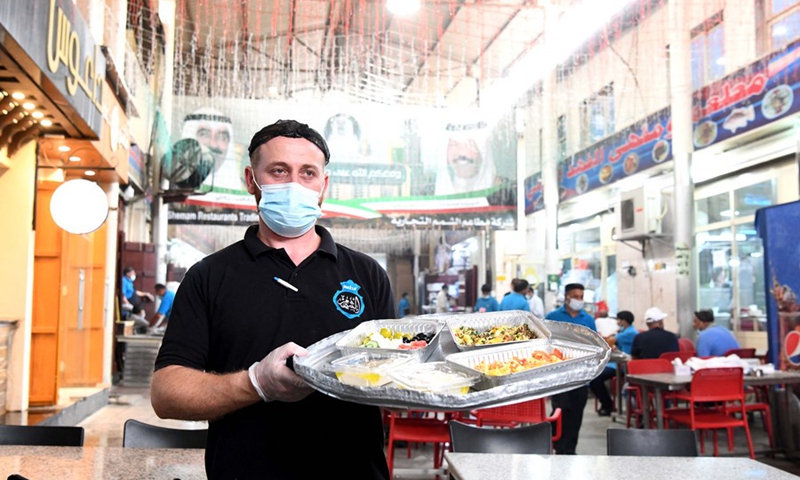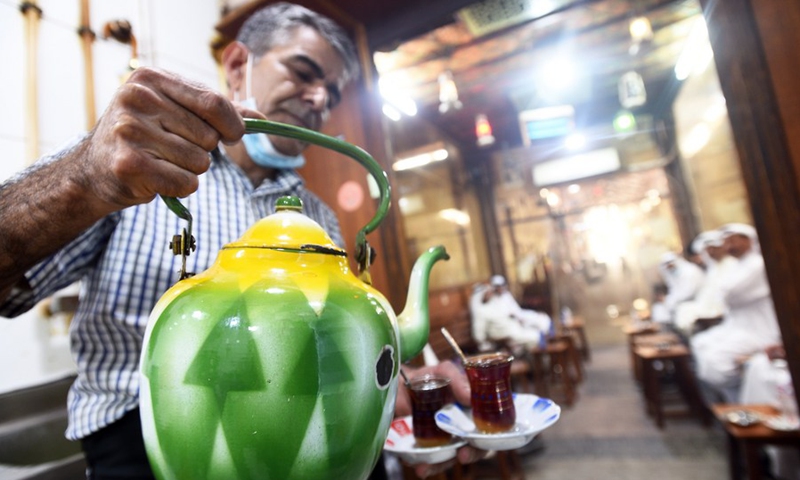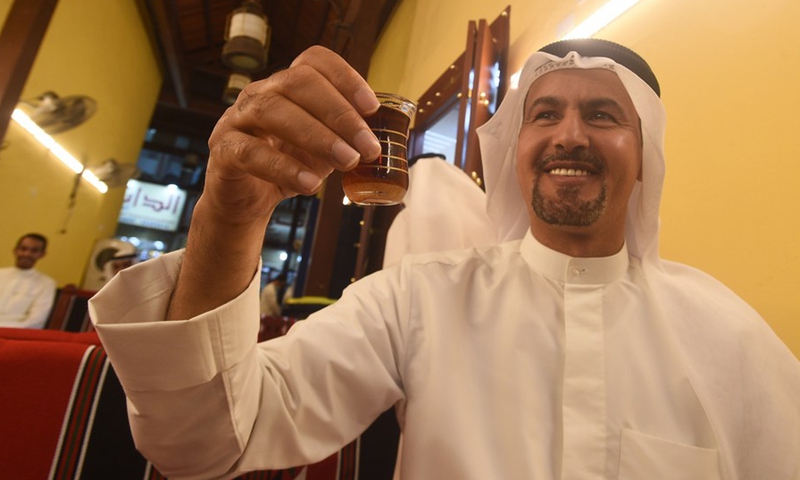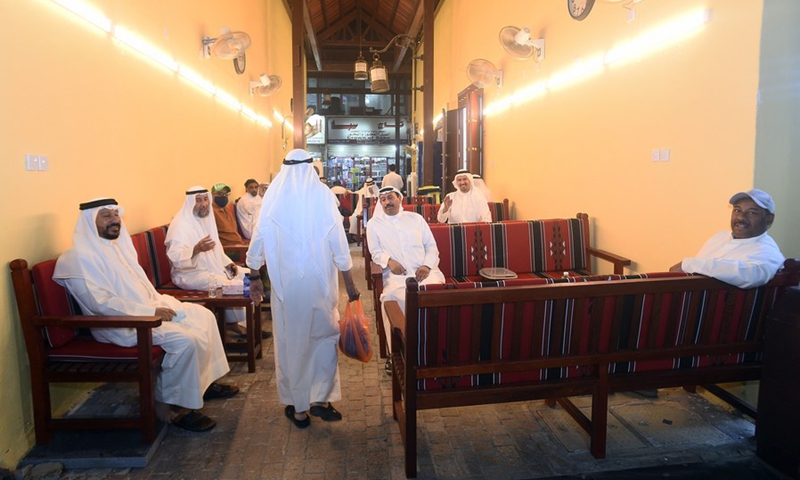Restaurants, cafes in Kuwait start dine-in service after months of closure over COVID-19 concern

A worker of a Kuwaiti restaurant serves food for customers at the Al-Mubarakiya market in Kuwait City, Kuwait, May 23, 2021. (Photo: Xinhua)

A worker serves tea for customers in a cafe at the Al-Mubarakiya market in Kuwait City, Kuwait, May 23, 2021.(Photo: Xinhua)

A customer drinks tea in a cafe at the Al-Mubarakiya market in Kuwait City, Kuwait, May 23, 2021.(Photo: Xinhua)

Customers sit in a cafe at the Al-Mubarakiya market in Kuwait City, Kuwait, May 23, 2021.(Photo: Xinhua)
Restaurants and cafes in Kuwait started on Sunday to receive dine-in customers after months of closure over COVID-19 concerns.
Fayez Al-Saleh, a 24-year-old Kuwaiti citizen, expressed his joys to Xinhua about the government decision to allow dine-in cafes and restaurants from today.
"I used to meet my friends and talk to them for hours or more. There is no place to spend time in, except for cafes and restaurants," Al-Saleh said, sipping his coffee and reading a newspaper at a shopping mall.
"I am happy that the life we used to know is returning. I have missed these moments during the partial curfew," he added.
Amani Al-Faleh, an employee in a government institution, used to go to restaurants twice or three times a week with friends as part of her after-work routine.
"The decision to re-open restaurants and cafes is the best one to make so far. There was no place to spend a good time except for restaurants," she told Xinhua.
After the government banned dine-in venues because of the spread of COVID-19, many restaurants launched drive-in service that provided food for customers in their cars, in an attempt to keep business going and have some profits.
Omar Kamel, a 46-year-old Lebanese who runs a cafe in Hawalli Governorate, told Xinhua that he suffered great losses during the period of closure and had to lay off many employees with low demands.
But the new dine-in decision has ignited his aspiration to overcome the crisis, Kamel told Xinhua.
Kamel's cafe follows strict government health precautions by measuring the body temperature of customers before entering, setting a two-meter interval between each table, and allowing a limited number of customers inside.
Osama Al-Fadhli, a Kuwaiti citizen, told Xinhua that the decision to "allow restaurants and cafes to reopen is part of normal life" in the light of the government efforts to vaccinate as many people as possible in Kuwait.
He told Xinhua that he received the vaccination two months ago and is committed to wearing masks and social distancing.
For Ali Al-Saad, a retired teacher, going to restaurants during the current period is still not quite advisable despite the vaccination.
"Despite all the health precautionary measures, I feel that the time is not yet right to go to restaurants and cafes. I am satisfied with takeaway orders and home meals with my family," Al-Saad told Xinhua.
The Kuwaiti government has allowed restaurants and cafes to receive customers for dine-in only from 5 a.m. until 8 p.m. starting Sunday. After 8 p.m., only takeaway and home delivery orders are permitted.
Meanwhile, the government imposes a set of health requirements on restaurants and cafes, where customers have to reserve a table before entering the restaurant or cafe, use digital payment transactions and avoid cash payments. Workers in restaurants and cafes must measure their temperature on a daily basis.
The health authorities in Kuwait launched a large campaign during the past weeks to vaccinate workers in restaurants, cafes, cooperative societies, mosques and commercial centers, and all other groups that have direct control with customers.
